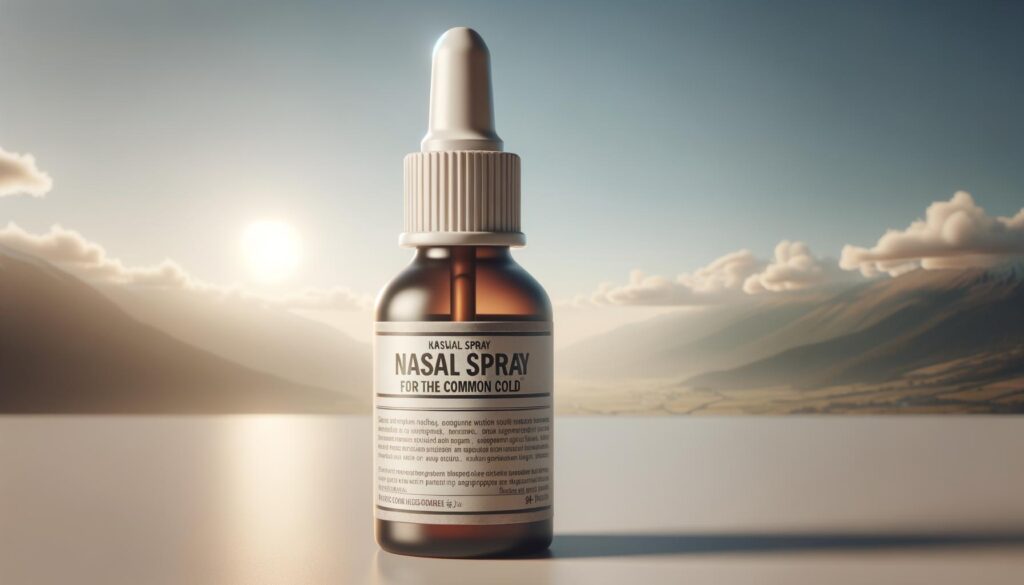Understanding the Impact of Nasal Sprays on Cold Treatment

How Nasal Sprays Work
Nasal sprays are a popular choice for many dealing with the bothersome symptoms of a cold. They deliver medication directly to the nasal passages, which helps relieve congestion and makes breathing easier. These sprays typically work in two ways: by soothing the irritated nasal membranes and by reducing inflammation. This is achieved either through antihistamines, which block the action of histamines in the body, or decongestants that shrink swollen blood vessels in the nasal passages.
The two main types of nasal sprays available are:
- Saline nasal sprays: These are simple saltwater solutions that help add moisture to the nasal passages, reducing dryness and thinning mucus.
- Mediated nasal sprays: These contain active ingredients like oxymetazoline or phenylephrine, targeting congestion and irritation more directly.
Regular use of these medications can aid in maintaining comfort, especially in the acute phase of a cold.
Effectiveness and Limitations
Nasal sprays are highly praised for their immediate effect on nasal congestion, but it’s crucial to understand their limitations. For temporary relief of congestion caused by the common cold, these sprays can indeed be effective. Their ease of use and quick action allow users to feel a difference within minutes, providing necessary respite.
However, nasal sprays are not without drawbacks. Overuse can lead to a condition known as rebound congestion, where the nose becomes more congested than before. It’s often advised not to use decongestant nasal sprays for more than three consecutive days. This is to avoid dependency and worsening symptoms. Practitioners commonly recommend saline sprays for longer-term use, as they pose a minimal risk of side effects.
Choosing the Right Nasal Spray
With several options on the market, picking the right nasal spray can be daunting. It’s important to consider what specific symptoms need addressing, as well as any potential side effects you may be prone to. For instance, if dryness and irritation are primary concerns, a saline spray would be ideal. On the other hand, if significant congestion hampers breathing, a medicated spray may be more effective.
When selecting a product, it’s also important to assess any personal medical conditions or medications that you may be taking. Some sprays could potentially interfere with existing health issues or drugs. Consulting with a healthcare professional can provide clarity on which nasal spray is most suited to your needs.
Natural Alternatives to Nasal Sprays
While nasal sprays are effective, some prefer exploring natural remedies. These alternatives aim to support the body’s immune response without medications. Methods include:
- Steam inhalation: Hot, moist air can help unclog nasal passages by loosening mucus.
- Hydration: Drinking plenty of fluids keeps the mucus thin and more manageable.
- Humidifiers: Increasing room humidity can soothe dry nasal passages, making breathing easier.
These can be ideal for individuals looking to avoid medication use entirely or for those experiencing milder symptoms of a cold.
Integrating Nasal Sprays into a Cold Treatment Plan
Nasal sprays, while beneficial, should be part of a comprehensive approach to treating colds. This typically includes resting, hydrating, maintaining a balanced diet, and, when necessary, using over-the-counter medications to manage other symptoms like fever or sore throat.
By combining nasal sprays with other treatment methods, individuals can effectively manage their symptoms and shorten recovery time. Key to this is understanding the limitations of each treatment component, ensuring each is used appropriately and responsibly.
Conclusion
Incorporating nasal sprays into your cold treatment regime offers potential relief from bothersome symptoms. It’s important, however, to be mindful of their use and to select the type that best suits your needs. Consider natural alternatives and integrate them into a holistic approach to cold management. Consulting healthcare professionals when necessary can optimize your treatment plan, enhancing both effectiveness and safety.
